Theatre is an art form that has spanned hundreds of years, and is defined by various aspects. The main component of theatre is performance, which can be incorporated in different forms, such as plays, musicals, ballets and operas. This leads on to another important aspect of theatre, which is acting, as, in every one of those types of performing, people are pretending to be someone else. The questions I asked some of the participants this week revolved around theatre; what differs between the environment at London Bubble and places such as The National Theatre or The Old Vic, what makes a good play, and whether they’ve always wanted to be part of the theatre or not.
“Community theatre is a great way to get back into theatre, or even to get started with it”, states Judith, a participant who was also involved in the previous intergenerational group project, ‘From Docks to Desktops‘. This is of course one of the main differences between how Bubble does things differently compared to The Old Vic, where there is perhaps a more competitive nature towards acting. Acting is a harsh industry and starting out somewhere like that is bound to be difficult and even may deter you from carrying on with it. Yet, a place like Bubble, which may be considered to be an amateur place, keeps people motivated and doing what they love in a relaxed environment.
The participants agreed that London Bubble is more inclusive compared to a seemingly more competitive place, like the National Theatre, where you have to audition and it has to be narrowed down to the best, and only what is considered to be the greatest plays are shown. Everyone is supportive of each other here at Bubble, and there’s none of that competitive aspect to it that may be prevalent in other places. It’s a safe environment where anyone is welcome and they’re made to feel comfortable. It’s about the community, especially with the intergenerational projects where the plays they do are based on information they’ve gathered from people in the local area, and they then show it back to them.
The process of making a play at Bubble is mostly collaborative. For this particular project, the participants were split up into little groups to be shown the first draft of the script, and their feedback was taken into consideration, which is rare in these types of environment. Usually, a director does their job, a writer does theirs, and the actors just come to act, but this way includes everyone. However, Bubble is more about the process of making theatre as opposed to actors just acting. The younger participants could be more involved in this part of things, but they may not be partly due to the fact that they just come to Bubble for the physical side of it, and that’s fine as they’re still involved with theatre and in doing something creative in some way.
There isn’t really a specific criteria to what makes a good play as it’s a very subjective thing and it just depends on the person and the type of play you’re watching. However, the general ‘guidelines’ agreed upon by the participants were that it should in some way have people or experiences that are relatable, as well as commitment. The director’s job is also very important, as they are the ones with the main concept of the play and all the actors have to do is fit into it. Additionally, a variety of scenes is another thing that makes a good play, so it’s not just people performing a monotonous, repetitive amount of scenes. The Hopelessly De-Voted project follows several of these rules, as the scenes vary from protests, Gogglebox, and Election Day. There’s singing and a different length of time for each scene, and of course with the elections coming up in the UK, this is as relatable as it gets.
The second week that I was observing the #HDV project, they were rehearsing several scenes. The end of the Gogglebox scene, which showed great innovation as newspapers were used in the place of placards and getting the participants to tear them up and make noise with them added an interesting effect to the scene. I also noticed that though the space they have is not much, they use it very well. Making an ‘X’ shape with paper across the room as a substitute for ballot boxes is a good use of space which is important to any kind of theatrical performance.
One of the participants, Danielle, said that she’s usually on the other side of this, as a producer or a director, and she thinks that it’s important to see how it is from the actors perspective, as it helps you do a better job. I think this is also a good way to get a sense of what goes into making theatre, as although there isn’t an actual rule book on what makes a good play, seeing it from every angle helps you understand it all a little bit better.
